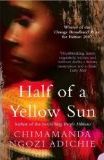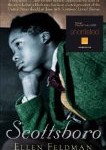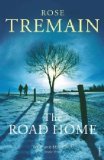The Orange Shortlist was announced a few days ago, and I have decided to try to read all the books on the list, before the winner is announced on 3rd June.
These six books are:
All summaries taken from the Orange Prize Website
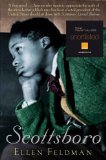

Scottsboro by Ellen Feldman
In Alabama, 1931, a posse stops a freight train and arrests nine black youths. Their crime: fighting with white boys. Then two white girls emerge from another freight car, and as fast as anyone can say Jim Crow, the cry of rape goes up. One of the girls sticks to her story. The other changes her tune, again and again. A young journalist, whose only connection to the incident is her overheated social conscience, fights to save the nine youths from the electric chair, redeem the girl who repents her lie, and make amends for her own past. Intertwining historical actors and fictional characters, stirring racism, sexism, and anti-Semitism into an explosive brew.
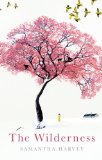

The Wilderness by Samantha Harvey
It’s Jake’s birthday. He is sitting in a small plane, being flown over the landscape that has been the backdrop to his life – his childhood, his marriage, his work, his passions. Now he is in his early sixties, and he isn’t quite the man he used to be. He has lost his wife, his son is in prison, and he is about to lose his past. Jake has Alzheimer’s. As the disease takes hold of him, Jake struggles to hold on to his personal story, to his memories and identity, but they become increasingly elusive and unreliable. What happened to his daughter? Is she alive, or long dead? And why exactly is his son in prison? What went so wrong in his life? There was a cherry tree once, and a yellow dress, but what exactly do they mean?As Jake, assisted by ‘poor Eleanor’, a childhood friend with whom for some unfathomable reason he seems to be sleeping, fights the inevitable dying of the light, the key events of his life keep changing as he tries to grasp them, and what until recently seemed solid fact is melting into surreal dreams or nightmarish imaginings. Is there anything he’ll be able to salvage from the wreckage? Beauty, perhaps, the memory of love, or nothing at all?


The Invention of Everything Else by Samantha Hunt
Louisa is an imaginative and curious chambermaid who, while cleaning rooms at the New Yorker Hotel, stumbles across a man living permanently in room 3327, which he has transformed into a scientific laboratory. Brought together by a shared interest in the pigeons that nest in the hotel, Louisa discovers that the mysterious guest is Nikola Tesla, one of the most brilliant – and most neglected – inventors of the twentieth century.


Molly Fox’s Birthday by Deirdre Madden
Dublin, Midsummer: While absent in New York, the celebrated actor Molly Fox has loaned her house to a playwright friend, who is struggling to write a new work. Over the course of this, the longest day of the year, the playwright reflects upon her own life, Molly’s, and that of their mutual friend Andrew, whom she has known since university. Why does Molly never celebrate her own birthday, which falls upon this day? What does it mean to be a playwright or an actor? How have their relationships evolved over the course of many years? Molly Fox’s Birthday calls into question the ideas that we hold about who we are; and shows how the past informs the present in ways we might never have imagined.


Home by Marilynne Robinson
Hundreds of thousands of readers were enthralled and delighted by the luminous, tender voice of John Ames in Gilead, Marilynne Robinson’s Pulitzer Prize-winning novel. Now comes HOME, a deeply affecting novel that takes place in the same period and same Iowa town of Gilead. This is Jack’s story. Jack ? prodigal son of the Boughton family, godson and namesake of John Ames, gone twenty years ? has come home looking for refuge and to try to make peace with a past littered with trouble and pain. A bad boy from childhood, an alcoholic who cannot hold down a job, Jack is perpetually at odds with his surroundings and with his traditionalist father, though he remains Boughton’s most beloved child. His sister Glory has also returned to Gilead, fleeing her own mistakes, to care for their dying father. Brilliant, loveable, wayward, Jack forges an intense new bond with Glory and engages painfully with his father and his father’s old friend John Ames.
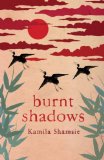

Burnt Shadows by Kamila Shamsie
In a prison cell in the US, a man stands trembling, naked, fearfully waiting to be shipped to Guantanamo Bay. How did it come to this? he wonders August 9th, 1945, Nagasaki. Hiroko Tanaka steps out onto her veranda, taking in the view of the terraced slopes leading up to the sky. Wrapped in a kimono with three black cranes swooping across the back, she is twenty-one, in love with the man she is to marry, Konrad Weiss. In a split second, the world turns white. In the next, it explodes with the sound of fire and the horror of realisation. In the numbing aftermath of a bomb that obliterates everything she has known, all that remains are the bird-shaped burns on her back, an indelible reminder of the world she has lost. In search of new beginnings, she travels to Delhi two years later. There she walks into the lives of Konrad’s half-sister, Elizabeth, her husband James Burton, and their employee Sajjad Ashraf, from whom she starts to learn Urdu. As the years unravel, new homes replace those left behind and old wars are seamlessly usurped by new conflicts. But the shadows of history – personal, political – are cast over the entwined worlds of the Burtons, Ashrafs and the Tanakas as they are transported from Pakistan to New York, and in the novel’s astonishing climax, to Afghanistan in the immediate wake of 9/11. The ties that have bound them together over decades and generations are tested to the extreme, with unforeseeable consequences.
So for the next few weeks I will mainly be reading Orange books!
Have you read any of the shortlist?
Do you plan to try reading them all?
I look forward to hearing your opinions!
![]()


